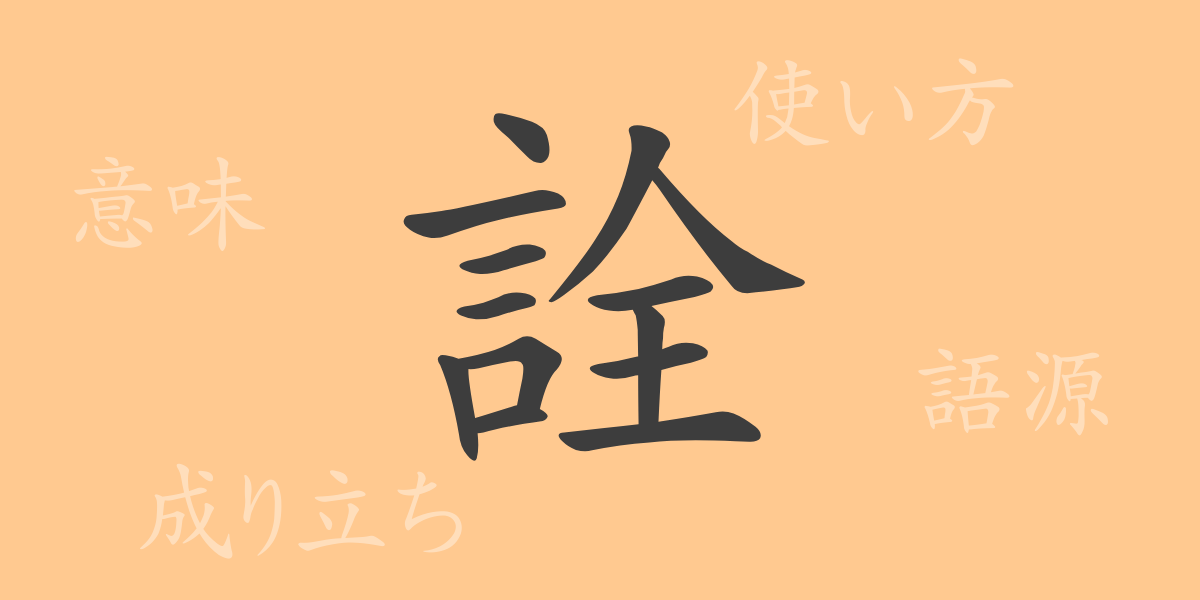Japanese kanji, known for their beauty and complexity, embody the depth of meaning that shapes the emotions and thoughts of the Japanese people. Although not commonly seen in everyday use, the kanji “詮” (せん) plays a significant role within the context of the Japanese language. This article explores the origins, meanings, and usages of “詮”, and delves into related phrases and idiomatic expressions, shedding light on its allure.
Origins of 詮
The kanji “詮” originated in ancient China, initially representing the act of discussing or clarifying the truth through words. It is composed of the radicals for “speech” (言) and “thread” (糸), symbolizing the unraveling of truth through the spinning of words. This combination underscores the kanji’s meaning of articulating and elucidating truths.
Meaning and Usage of 詮
“詮” encompasses meanings such as “to express,” “to clarify,” and “to interpret.” It is commonly used to explain the true intentions of matters or to articulate reasons. Additionally, in discussions or debates, “詮” is employed to clarify the essence of a subject.
Readings, Stroke Count, and Radical of 詮
The basic information regarding the kanji “詮” is as follows:
- Readings: On’yomi (Sino-Japanese reading) is “セン”, Kun’yomi (native Japanese reading) is “あきらか”.
- Stroke Count: “詮” consists of 13 strokes.
- Radical: The radical is “言”, which relates to speech and words.
Phrases, Idioms, and Proverbs Involving 詮
The kanji “詮” features in various idioms and proverbs, each reflecting its nuanced meanings:
- 詮索 (せんさく): To inquire or investigate unnecessarily deeply into matters.
- 詮議 (せんぎ): To discuss or debate the merits and truths of a matter.
- 無駄詮 (むだせん): To futilely discuss or debate matters that cannot be resolved.
- 詮索好き (せんさくずき): A person who is overly curious and likes to pry into other people’s private affairs.
Conclusion on 詮
While not frequently used, the kanji “詮” holds a pivotal role in Japanese language, revealing truths and essences through communication. The expressions containing “詮” reflect aspects of Japanese spirituality and culture, offering insights into the people’s mindset. Exploring this kanji helps us appreciate the depth and richness of language and expression in Japan.

























